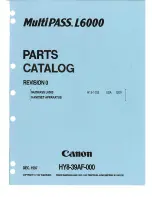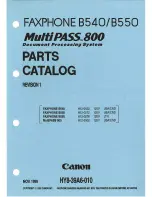
Combining Transfer Request with Broadcasting
If you wish to set up complex fax message distribution networks, you can make a
Transfer Request using more than one Transfer Station. When you do this, you can
send the same message to up to 30 Transfer Stations, and each Transfer Station
can pass the message on to 30 End Receivers.
Assume that your machine is in San Francisco and you wish to send the same
message to various locations in the U.S.A. Of course, doing a simple broadcast,
sending to each terminal directly from your machine, would get the job done, but
you would not be taking advantage of the cost-cutting features of the machine.
However, if you incorporate Transfer Request, as shown below, your machine
would only make 4 calls, instead of the 10 that would be necessary if Transfer
Request was not used. This saves costs.
❐
Your machine can play any part in a Transfer Request network of this type,
provided that you have programmed all the required features as explained
earlier in this section.
❐
The ID codes of the requester (San Francisco) and the Transfer Stations (New
York and Houston) must be the same. The requester must have its own fax
number programmed.
❐
The model used by the requester (San Francisco) must be able to make
Transfer Requests through more than one Transfer Station.
❐
Reports indicating success or failure will be returned to San Francisco from the
terminals in Houston and New York.
To do this procedure, use the broadcasting procedure on page 19. The
destinations should be as follows:
❐
Los Angeles
❐
Seattle
❐
A Group containing Boston, Hartford, Philadelphia, Buffalo, and Atlantic
City, with New York as the Group Transfer Station
❐
A Group containing Dallas, New Orleans, and Oklahoma City, with Houston
as the Group Transfer Station
Los Angeles
Philadelphia
Buffalo
Atlantic City
Dallas
New
Orleans
Oklahoma
City
Hartford
New York
Houston
San
Francisco
Boston
Seattle
NETWORKING
ADVANCED FEATURES
54
















































